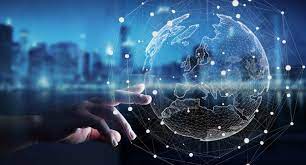
Unleashing the Power of Digital Innovation: Navigating the Future
The Digital Revolution: Transforming Our World
In today’s fast-paced and interconnected world, the term “digital” has become ubiquitous, shaping nearly every aspect of our lives. From communication to commerce, education to entertainment, the digital revolution has transformed how we interact with the world around us.
At its core, “digital” refers to the use of technology to create, store, and process information in binary form. This shift from analogue to digital has revolutionised industries and empowered individuals in ways previously unimaginable.
The Impact on Communication
One of the most profound effects of the digital revolution is seen in how we communicate. Social media platforms, messaging apps, and email have made it easier than ever to connect with others across the globe instantly. The barriers of time and distance have been significantly reduced, enabling real-time conversations and collaborations.
Transforming Commerce
Digital technology has also revolutionised the way we shop and do business. E-commerce platforms have made it possible to browse and purchase products from anywhere at any time. Businesses can reach a global audience with a few clicks, while consumers enjoy greater convenience and choice.
Revolutionising Education
In the field of education, digital tools have opened up new possibilities for learning. Online courses, interactive resources, and virtual classrooms provide access to knowledge regardless of location or background. Students can engage with content in dynamic ways that cater to individual learning styles.
The Future of Entertainment
Entertainment has also been transformed by digital technology. Streaming services offer a vast array of content on-demand, allowing viewers to customise their entertainment experience. Virtual reality and augmented reality are pushing boundaries in immersive storytelling and gaming.
Challenges and Opportunities
While the digital revolution has brought about tremendous benefits, it also presents challenges such as data privacy concerns, cybersecurity threats, and digital divide issues. However, these challenges also present opportunities for innovation and collaboration to create a more inclusive and secure digital landscape.
The Journey Ahead
As we navigate this ever-evolving digital landscape, one thing is clear: the potential for growth and transformation is limitless. By embracing new technologies responsibly and creatively, we can harness the power of the digital revolution to shape a brighter future for generations to come.
The digital revolution is not just about technology; it’s about people coming together to build a more connected world where possibilities are endless. Let’s embrace this journey towards a more digitised future with curiosity, adaptability, and a commitment to progress.
Digital Exemplified: Common Instances and Applications
Embracing the Digital Realm: What It Means for Businesses and Individuals
4. The Role of Digital within Technological
- What is a digital company?
- What are examples of digital?
- What is meant by being digital?
- What is digital in technology?
- What digital really means?
What is a digital company?
A digital company is an organisation that leverages digital technologies and platforms to conduct its business operations, deliver products or services, and engage with customers. In essence, a digital company utilises technology as a core component of its strategy, enabling it to streamline processes, enhance efficiency, reach a wider audience online, and adapt to the ever-changing digital landscape. These companies often prioritise innovation, data-driven decision-making, and customer-centric approaches to stay competitive in the digital age.
What are examples of digital?
In the realm of digital technology, the term “digital” encompasses a wide array of examples that have become integral parts of our daily lives. From smartphones and laptops that keep us connected and productive to streaming services like Netflix and Spotify that provide on-demand entertainment, the digital landscape is vast and diverse. Online shopping platforms such as Amazon and eBay have revolutionised the way we shop, while social media platforms like Facebook and Instagram have transformed how we communicate and share information. Additionally, digital currencies like Bitcoin and Ethereum are reshaping the financial sector. These examples illustrate just a fraction of the myriad ways in which digital technology has permeated nearly every aspect of modern society.
What is meant by being digital?
Being digital refers to the state of using technology and digital tools to create, store, process, and communicate information in binary form. It encompasses a shift from traditional analogue methods to digital processes, enabling greater efficiency, connectivity, and innovation across various aspects of life. Embracing a digital mindset involves leveraging technology to enhance communication, streamline operations, access information rapidly, and adapt to the ever-evolving digital landscape. In essence, being digital signifies harnessing the power of technology to transform how we interact with the world and navigate the complexities of the modern age.
What is digital in technology?
In the realm of technology, “digital” refers to the representation of data or information using discrete values, typically in binary form (0s and 1s). This fundamental concept underpins the operation of digital devices and systems, enabling them to process, store, and transmit data efficiently. Digital technology has revolutionised various industries by offering enhanced capabilities, precision, and scalability compared to analogue counterparts. From smartphones to computers, digital technology plays a crucial role in shaping our modern world and driving innovation across diverse sectors.
What digital really means?
In the realm of technology and innovation, the question “What does digital really mean?” often arises, prompting a deeper exploration into the concept’s essence. In its essence, “digital” refers to the representation of data or information in a discrete form using binary code, typically in the form of ones and zeros. This fundamental shift from analogue to digital has revolutionised how we interact with technology, enabling faster processing, storage, and transmission of information. Digital goes beyond mere technology; it embodies a paradigm shift that permeates various aspects of our lives, shaping how we communicate, learn, work, and entertain ourselves in this interconnected world.